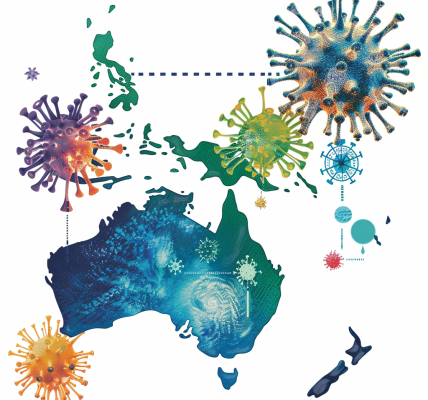A recent outbreak of a rare and deadly ‘flesh-eating bacteria’ in Japan has caused alarm as cases of streptococcal toxic shock syndrome (STSS) have surged to 977 by June 2, surpassing last year’s record high of 941 cases. The disease, caused by Group A Streptococcus (GAS), can lead to rapid onset of severe symptoms such as limb pain and swelling, fever, low blood pressure, necrosis, breathing difficulties, organ failure, and death, with most fatalities occurring within 48 hours.
According to Ken Kikuchi, a professor in infectious diseases at Tokyo Women’s Medical University, the rapid spread of the bacteria is linked to the relaxation of Covid-era restrictions in Japan. Individuals over 50 years old are particularly vulnerable to the disease, and early detection is crucial as symptoms can escalate rapidly.
Recent reports from the World Health Organization have highlighted similar outbreaks in European nations following the easing of Covid restrictions. The WHO has warned of the potential for a significant increase in STSS cases if preventive measures are not implemented promptly.
Professor Kikuchi emphasized the importance of hand hygiene and prompt treatment of any wounds to prevent the spread of GAS. He also noted that patients may unknowingly carry the bacteria in their intestines, increasing the risk of contamination through improper hygiene practices.
With the current infection rate, experts predict that Japan could see up to 2,500 cases of STSS this year, with a mortality rate as high as 30%. The alarming statistics underscore the urgent need for public awareness and preventive measures to curb the spread of this deadly bacteria.





